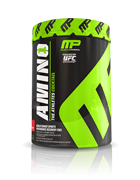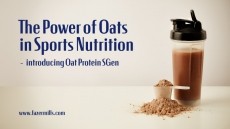Amino acid supplements may offer diabetes hope: Mouse data

The study shows that supplementation with the amino acid significantly improves glucose metabolism in both insulin-sensitive and insulin-resistant mice.
Led by Christoffer Clemmensen from the University of Copenhagen, the researchers suggested that supplementation with the amino acid could offer significant benefits for people who suffer from type 2 diabetes.
"We have demonstrated that both lean and fat laboratory mice benefit considerably from arginine supplements," said Clemmensen.
"We improved glucose metabolism by as much as 40% in both groups," he said. "In fact, the amino acid is just as effective as several well-established drugs for type 2 diabetics."
However the researcher noted: "You cannot, of course, cure diabetes by eating unlimited quantities of arginine-rich almonds and hazelnuts. However, our findings indicate that diet-based interventions with arginine-containing foods can have a positive effect on how the body processes the food we eat."
Study details
The researchers noted that more than 371 million people worldwide suffer from diabetes, of whom 90% are affected by lifestyle-related diabetes mellitus type 2 (type 2 diabetes).
To test the effect of the amino acid arginine, researchers subjected lean and obese animal models to a so-called glucose tolerance test, which measures the body's ability to remove glucose from the blood over time.
They found that arginine improves glucose metabolism significantly in both lean (insulin-sensitive) and obese (insulin-resistant) mice.
"We can also see that arginine increases the body's production of glucagon-like peptide-1 (GLP-1), an intestinal hormone which plays an important role in regulating appetite and glucose metabolism, and which is therefore used in numerous drugs for treating type 2 diabetes," said Clemmensen.
"Mice without GLP-1 receptors are not affected to the same extent by arginine," he added. "There is no perceptible improvement in glucose metabolism or insulin secretion, confirming our hypothesis of a close biological connection between GLP-1 and arginine."















